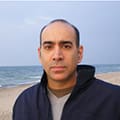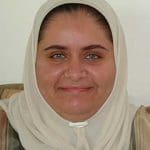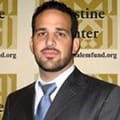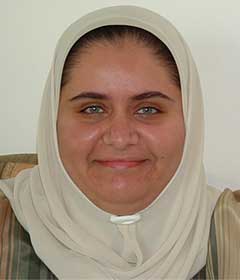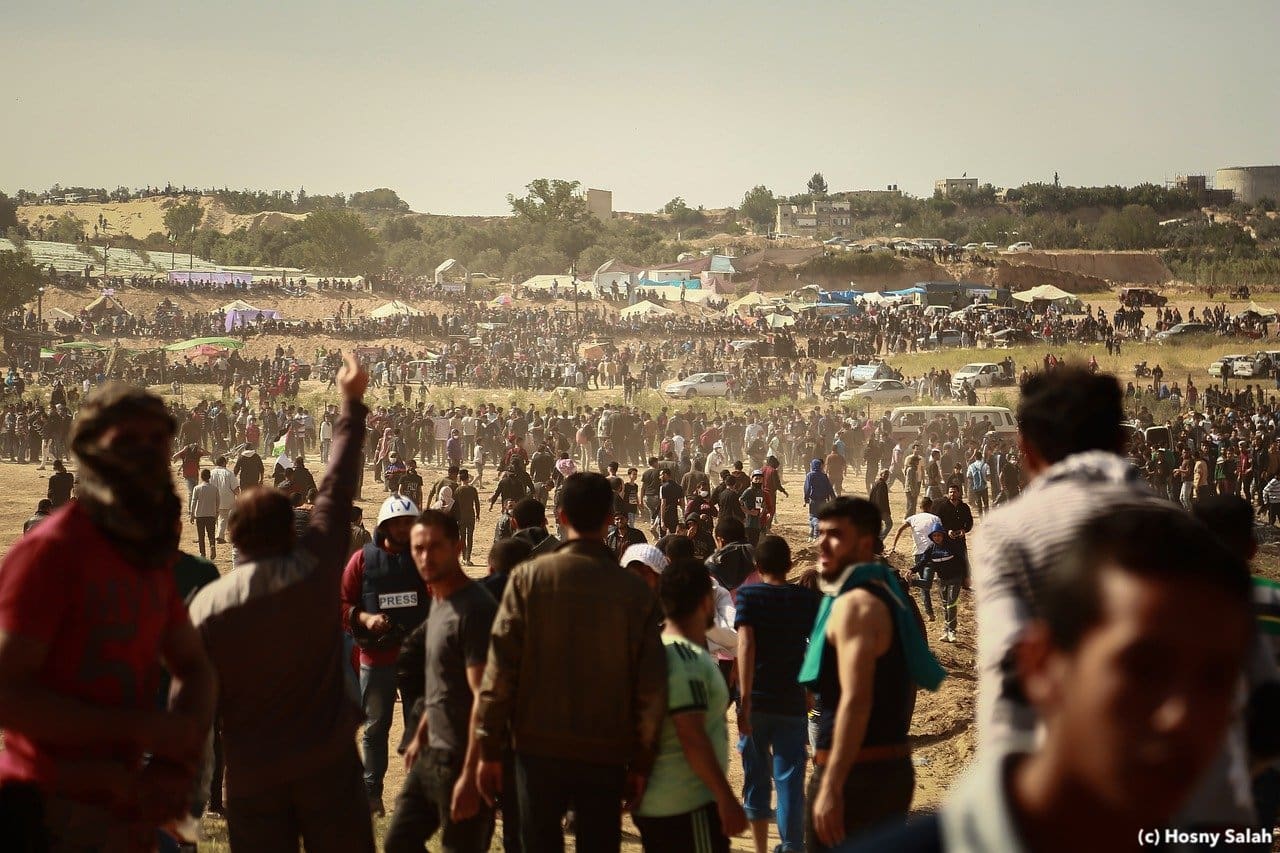
Overview
This Al-Shabaka roundtable was developed in response to Jamil Hilal’s policy brief “Palestinian Answers in the Arab Spring.” A cross-section of policy advisors offer their reflections on the Hilal’s brief, the state of Palestinian politics and society, and the future of the Palestinian national movement. Hani al-Masri discusses why a comprehensive Palestinian uprising has not yet materialized. Will Youmans examines the need to reconceptualize the PLO to produce a PLO 2.0 that fosters decentralized collaboration among equal nodes. Toufic Haddad argues the case for reforming the PLO from below, through real struggles on the ground especially in the occupied territories. Mezna Qato contends that participatory democratic mobilization will form the basis for Palestinian liberation. Rana Barakat questions Hilal’s case for elections, asking whether they can begin to cure all the ills of the PLO and notes that the organization was not the victim of Oslo but part and parcel of the agreement. Ali Abunimah suggests that, instead of an institution-centered revival of the national movement, Palestinians ought to focus their limited resources on an agenda-centered revival, with specific reference to the three goals of the 2005 civil society call for boycott, divestment, and sanctions (BDS). Beshara Doumani argues that Palestinian answers to the Arab Spring have to take into account socioeconomic and cultural challenges, not just political ones; and that the frequently invoked concept of “fragmentation” is a problematic one that needs to be approached critically and historically.
In his response, Jamil Hilal contends that the main issue is how Palestinians can rebuild rather than reform their national movement. Hilal adds that a new national movement must perform the role of maestro, coordinating activism by different and disparate Palestinian communities in order to achieve national, social, and human rights.
Hani al-Masri
The impact of the Arab revolutions on Palestine is evidenced in the youth movement on March 15, the reconciliation agreement on April 27, and the commemoration of the Nakba on May 15. This impact will multiply since Palestine, the land of revolutions and uprisings for more than 130 years, cannot be immune to this spirit.
There are many reasons why a comprehensive Palestinian uprising did not ultimately materialize as some had believed it would:
- The previous revolutions and uprisings – as many as 15 – in which the Palestinian people made tremendous sacrifices, did not achieve their primary objectives, although there have been gains. Before the people can rise up again, they want to understand and address the reasons for failure so that the next uprising can achieve results.
- The devastating division between Fatah and Hamas depleted the potential of the Palestinian people, with both organizations engaging in a destructive internal conflict over power, benefits and positions.
- There is lack of clarity regarding both the objectives of an uprising and the strategies to realize them. Since the 1980s, the Palestinian leadership has fallen short of the national agenda endorsed by the Palestine Liberation Organization (PLO), at the same time as Hamas has been adopting this agenda. There is confusion and uncertainty about what should be done regarding September and beyond. Indeed, Palestinians fear that their struggle and popular resistance might be used as a tactic to resume negotiations. They also worry about the focus on the West Bank and Gaza Strip while neglecting the remaining segments of the Palestinian people.
- The leadership is disinclined to pursue either a popular or armed uprising because it fears the consequences and worries about its status as well as its Arab and international relations, particularly with Israel. Palestinian President Mahmoud Abbas has openly declared that he is against all forms of uprising. The Palestinian Authority (PA) prevents any friction with the settlers or at checkpoints to prevent clashes that could develop into an uprising. If the PA supports an uprising, it will be punished by Israel; if it represses an uprising the people will turn against it.
- The Arab revolutions have succeeded only in Tunisia and Egypt where they remain in a transitory stage that could be protracted. The fate of the revolutions in Libya, Yemen, and Syria is not yet decided, nor have they yet broken out in other Arab countries. Thus, the final picture as well as the medium-and long-term implications of revolution remain unclear. A Palestinian revolution that takes place amidst unfinished Arab revolutions would be inappropriately timed, with Arab peoples preoccupied with other affairs and unable to grant their maximum support.
The direct implications of Arab revolutions are contradictory. On the one hand they have strengthened the demand for a two-state solution, as can be seen in President Barak Obama’s speech and several international actions. At the same time, the prospects for such a solution have been weakened, as can be seen in Israeli Prime Minister Benjamin Netanyahu’s speech. Moreover, Palestinian popular actions now raise the refugees’ right of return with unprecedented frequency compared to the period between the signing of the Oslo Accords and 2010.
Will Youmans
I am entirely sympathetic to Jamil Hilal’s essay but would suggest we re-conceptualize the PLO, or PLO 2.0. Instead of a centralized, top-heavy, organ that becomes the center of a democratized Palestinian politics, we should be thinking of strengthening ties between networks, of finding new ways of coordination and collaboration between differently positioned Palestinians. A central, top-heavy organizational entity is inherently inflexible, too easy to co-opt and bottlenecks the creative currents and political cultures that are too often suppressed, especially those of younger generations.
What we have now that we did not have during the PLO’s heyday are advanced communication technologies, tools that allow for the rapid sharing of information and knowledge. As Manuel Castells writes, a network society is built of nodes and connectors. De-centralization is a fact of modern life, and as Palestinians, we’ve lived fragmented political lives, which Hilal points out is a symptom of Oslo myopia.
Forcing a centralization on the greater Palestinian body politic, in the form of a strong PLO, is incongruent with the fact of Palestinian dispersion as well as the logics of collective action that exist today, which the Arab Spring epitomized. Instead of a large, formalized institution, PLO 2.0 should be about the production, sharing and circulation of data, collaboration among equal nodes. It is about discourses, not by-laws; culture, not back-room politics.
I would argue for the PLO to be just one equal node that works to strengthen other nodes, to coordinate between them, and build ties. Rather than being a democratic umbrella that represents all different Palestinian groups, it should seek to embolden and strengthen the various nodes — from camps in Lebanon, to groups in North America. Perhaps at a later time, the PLO could emerge as a fully central node, and even re-earn the status as a representative agent.
To be clear, I do not believe communication technology is our savior, it’s just we’ve been too fragmented to propagate a new center, and new models of political organizing now exist.
Toufic Haddad
Jamil Hilal is correct in identifying the need to reconstitute the Palestinian national movement on a democratic basis, and within the framework of the PLO. Rebuilding PLO institutions however is not something that can take place via remote control. It requires real struggles on the ground, against bureaucrats and managers, many of whom derive from party, business, and traditional elites. We cannot fool ourselves that democratization can come without reasserting power from below against those who have taken it from above. The undemocratic, neoliberal agenda of PA prime minister Salam Fayyad is the best place to start, as it asserts the power of Palestinian, Israeli, and international capital over the people.
If democratic change can be imposed through activism from below in the Occupied Palestinian Territories (OPT), it will have ripple effects across other theatres. The opposite however is not necessarily true — that meaning, the push for democratization of Palestinian institutions in the disapora and inside Israel, will not have as profound an effect in the OPT. Such is the dynamic of our movement in this period of history.
Democratization and self-organization are no less important for the diaspora and Palestinian-Israelis. But just as crucial is having these theatres advance in the struggles of their particular contexts: the diaspora, in playing an active role in participating and strengthening the Arab spring, and Palestinian-Israelis engaging in the struggle for the de-Zionization of Israel, by targeting the contradictions of the “Jewish democratic” state.
The lesson here for all theatres is that struggle has the potential to build democratic institutions – not the other way around. We cannot fetishize creating perfectly democratic institutions without movements who assert this in practice on the ground. Choice of struggles and timing may differ according to context, but it is important that the democratic impetus be embedded in practice, not bureaucracy, as has been the case with the PLO to date, leading to the degenerated state of affairs we are in today.
Mezna Qato
The call for direct elections to the PNC is imperative because it is rooted in the principles of self-determination and national representation for Palestinians, everywhere; without fetishizing the PNC’s past, it re-enforces the principle that the rightful ownership of Palestinian national institutions is with the Palestinian people; and it re-directs the national movement away from Ramallah as the locus of Palestinian politics, towards the Palestinian people as a whole, and the Palestinian people as the source of the Palestinian liberation movement’s agency.
However, even the demand, and mobilization for direct elections to the PNC, cannot succeed without mechanisms that ensure popular accountability at every turn. Democracy in Palestinian organizing, at every level, cannot be elided for the sake of “national urgency,” and can no longer be sacrificed at the expediency of one political crisis after another. The slow, careful, tedious, yet liberating work of exercising self-determination through participatory democratic action must be rooted not only in national demands, but in the everyday practices of community and associational organizing. Those practices will in turn reinforce national demands, building participation dynamically across levels of political work.
In this sense, I disagree with the sectoral/generational aspects of Hilal’s analysis—an aspect that, as others in this round table have noted, hinges on a particular understanding of the nature and history of the fragmentation of the Palestinian body politic. In its place, Palestinian politics and analysis must be opened up to a politics of popular participation that actually takes into account and listens to the needs and demands of Palestinians; that every Palestinian counts, young and old, inside and outside, party-affiliated or not. Every Palestinian must be given their rightful ownership in determining the strategies and course of the national movement through mobilization and participation. Who and wherever they are, Palestinians, especially the youth now organizing around the world, connect and understand themselves and their interests as a body politic in ways that cut against Palestinian historical tropes and in other ways entrench them. However, Palestinians may see their plights as perhaps different in scale, but they are rooted in and the consequence of the same settler colonial logic of elimination and permanent dispossession.
Embedded within the principles of this call must, therefore, be a re-ordering of our political life, a rebuilding of trust within and about our Palestinian national bodies. Participatory democratic mobilization is the foundation of Palestinian liberation.
Rana Barakat
Since the incredible unfolding events of the “Arab spring,” Palestinians have been asking what effect the uprisings would have on politics and political movement on and about Palestine. Jamil Hilal offers a sober view of the scene and presents a convincing argument about the dire need for Palestinians to rebuild the national movement. Hilal confronts the question many are asking as the Arab spring turns to summer: what is the most effective means of re-building the national movement vis-à-vis PLO in light of a new Arab situation.
This focus on the national movement is an important one, obviously, but to present an argument that concentrates on structures that lead to mobilization might need a closer look and a more comprehensive view of mobilization. Hilal argues that the PLO can and should be salvaged and reformed to shed the destruction wrought upon it by the Oslo years and all that this defunct process entailed. Moreover, Hilal emphasizes the need for direct elections for the Palestinian National Council (PNC). Though fraught with obvious obstacles, Hilal argues that direct democratic representation is of paramount importance. Direct elections, therefore, solve the question of mobilization, participation, and righting historical wrongs of a corrupt “leadership.”
Certainly arguing for an agenda based on democratic principles that will heal the broken body politic of Palestine, as Hilal does, is completely logical. How to achieve this goal, and the timing of it, however, is less certain. Can direct elections fix all that is broken in the PLO? Moreover, is mobilization that sees elections as an all-encompassing cure to the ills of the body politic only reading part of the diagnosis?
Hilal, furthermore, concludes that the PLO as a basic structure for national aspiration for Palestinians is not only an entity worth preserving, but also one that is necessary to achieve our goals of liberation. This point, along with the still well entrenched statist aspects to our reading of liberation is something that needs to be understood with a critical eye. Perhaps the point is not to only focus on the mechanisms of a democratic process for the PNC elections, but to subjectively evaluate how the PLO structures (including the PNC) were part and parcel of the road to Oslo and not only another victim of the process. The Oslo process was not born out of a vacuum, but rather, was a result of serious strategic thinking — as disastrous as it has been. History has important lessons to which Hilal seems to find too easy an answer.
The break of Oslo – with the PA sidelining the PLO (if that is what happened) — did not come out of nowhere and to better understand that would be to provide us with a more comprehensive understanding of where we stand now. Perhaps the lessons of the Arab Spring are not necessarily about trying to find a way to mirror revolutionary activity, but to realize that these common struggles are in fact common. Indeed, even in Tunisia and Egypt, where the head seems to have fallen, the revolutionaries continue to fight the well-entrenched interests within the systems and structures of power. Finally, Palestinian grassroots political and social movements (of which we also need a much better understanding) have been historically co-opted by elitist tendencies. This is as true in the Revolt of 1936 as it is for the Intifada in 1987. I wonder how much this thinking about movements is another kind of elitist co-option?
Ali Abunimah
Palestinians, young and old, are openly expressing dissatisfaction with the utterly failed strategy of “national liberation” pursued by the traditional leadership that is still monopolizing PA and PLO institutions.
Political leaders are trying to respond—for example the superficial, ill-conceived and unworkable “reconciliation” between Hamas and Fatah, in which the former wishes to maintain at least rhetorically its commitment to resistance, while the latter maintains its active collaboration with, and dependence on, Israel and other enemies of the Palestinian people under the rubrics of “security coordination” and “state-building.”
What is missing in all this is any discourse about Palestinian national goals. Jamil Hilal has expressed the concerns of many by talking about a revival of independent, democratic and representative Palestinian national institutions, especially the PLO. Few would have a problem with that in principle. But the challenges are even more formidable than even Hilal points out in his thorough analysis.
As I observed previously in “Toward Palestine’s Mubarak Moment,” the problems with holding PNC elections alone are not just logistical:
In recent years, “out of country voting” facilities were provided for large Iraqi and Afghan refugee and exile populations for elections sponsored by the powers occupying those countries. In theory, it would be possible to hold elections for all Palestinians, perhaps under UN auspices—including the huge Palestinian diaspora in the Americas and Europe.
The trouble is that any such elections would probably need to rely on the goodwill and cooperation of an “international community” (the U.S. and its allies), which has been implacably opposed to allowing Palestinians to choose their own leaders.
Would the energy and expense of running a transnational Palestinian bureaucracy be worth it? Would these new bodies be vulnerable to the sorts of subversion, cooptation, and corruption that turned the original PLO from a national liberation movement into its current sad status where it has been hijacked by a collaborationist clique?
To me the question then is whether as a national movement with limited resources, Palestinians can afford to invest so much effort into institution-building with no guaranteed outcomes and such high risks? How could Palestinians ensure the true representativeness of any new or revived institutions when they are so geographically fragmented?
One answer is that they should not try at least for now. Instead of an institution-centered revival of the Palestinian movement, perhaps they ought to focus their limited resources on an agenda-centered revival.
And we already have that agenda in the form of the 2005 BDS call widely endorsed by Palestinian civil society. The BDS call emphasizes the rights of the three main groups of Palestinians: and to occupation and colonization of all lands conquered by Israel in 1967; full equality for Palestinians in the 1948 lands; and the rights of refugees, including the right of return.
In addition, this platform comes with a course of action: boycott, divestment and sanctions among other forms of struggle that Palestinians inside and outside the homeland can engage in.
This is a true, consensus platform that potentially unites all Palestinians. The strategic choice may be to focus our resources on educating more and more Palestinians about the BDS call, and mobilizing them wherever they are in support of action to implement it.
If more Palestinians are mobilized around a straightforward strategy for liberation that is already well-articulated and has broad and growing support, they will be in much better shape to rebuild more centralized and overarching national institutions that are less susceptible to capture by elements that are hostile to the rights of most Palestinians.
In an ideal world, I would want to see a fully democratic PLO leading a struggle to achieve the goals expressed in the BDS call. In the real world, our resources are limited, and I would rather focus on building a movement, rather than building “institutions.” Build the movement, and the institutions will come.
Beshara Doumani
Jamil Hilal’s prescriptions on how to reconstitute the Palestinian national movement in response to the “Arab Spring” – unifying the Palestinian body politic; building representative, inclusive, and secular political mechanisms that guarantee pluralism and democracy; and revitalizing the PLO – have been on the table for over a generation now and enjoy a widespread consensus among what one might call the Palestinian liberal political class. They may be vindicated by the Arab Spring, but can hardly be considered answers to it.
So one question I would pose is: Has the “Arab Spring” changed anything for the Palestinians in so far as this consensus is concerned? It may be too soon, but to have that discussion, one would need a brief that critically examines the actual changes that have taken place such as the emergence of a new political vocabulary (“The People Want…”), changing geo-strategic alignments (Egypt’s policy towards Palestinian reconciliation and opening to Gaza; the Syria/Hamas connection; and so on), new economic dynamics, new models for reconstituting the constitutions and body politics in Tunisia, Egypt, Yemen, and elsewhere. The list can go on. A brief that critically analyzes these changes, charts their trajectories, and how they interface with the Palestinian condition may help us find Palestinian answers to the Arab Spring.
This prevailing consensus on the goals and steps outlined by Hilal, I would add, answer the political, not the social question posed by the Arab Spring. That is, they amount to a slightly customized variance on a universalist liberal formula, the heart of which is a system of electoral politics. Although the word “social” appears at the end of the brief, there is no vision or substance in the brief regarding what the social answers may be beyond the role that can be played by revitalized “mass organizations” originally set up in the 1970s, such as the writer’s union.
Surely the Arab Spring would quickly turn to winter if the answers call for a liberal political order that does not challenge the neo-liberal economic order. I agree with Hilal that reconstituting the Palestinian national movement is a top priority, but this process must squarely face the social question, not just the political one. Being a sociologist who has written about the social issues more than most, Hilal would agree that the Palestinian condition is structured by class, cultural, and other forces, not just the spatial and politico-legal boxes created by Israel, the Arab states, and international bodies. One of the answers to the Arab Spring, I would hope, would be to break through the silence on social question, which has long been the default position of Palestinian political discourse.
Having said that, I find another silence in the brief — the debate about one or two states — to be delightful and refreshing. Indeed, the fact that the word “state” does not appear once in a policy brief is rather startling, considering the thoroughly state-centric grammar of Palestinian political language. I would go further and say that Hilal’s eschewing of this word opens up a space to actually discuss the social and cultural dimensions of the Palestinian condition, which is where everyday politics is actually carried out. It allows, in other words, a conversation that can redefine and expand the meanings of “political.”
However, as a historian I must question the brief’s analytical point of departure: Namely, the statement that “the Oslo Accords institutionalized the fragmentation of the Palestinian people.” I do so for three related reasons. The least important one is that there is a tendency in critical political writing to treat Oslo as the Original Sin. I do not contest the rupture and largely tragic consequences of this transformative moment, but it must be seen as part of a larger history “fragmentation” that we cannot afford to ignore in our analysis.
Hilal rightly points out near the end of the brief, how important it is for Palestinians not to forget the PLO’s legacy of militant struggle. We must also, I would add, not forget the institutionalization of exclusion and marginalization practiced by the Palestinian national movement during its three major stages, not just since Oslo. A good part of the condition of the Palestinian fragmentation is, in other words, self-inflicted and consistently so for almost a century.
The final and perhaps most important reason is that the word “fragmentation” is so loaded with baggage that it is hard to get it off the ground. It is a favorite trope in Orientalist claims about the “mosaic” nature of Other non-western societies. It is central to modernization theory, especially the Weberian notion of traditional, vertically organized societies. It is a vexing issue for Marxists despite much creative thinking by the New Left in the 1970s. And, along with the related issue of “difference,” it is a near obsession of post-structuralist analysts. The notion of “fragmentation,” in short, has so many different meanings and implications that invoking it frees the writer from the burdens of the past and allows un-tethered prescriptive liberties for the future.
Perhaps this is why this notion permeates historical and political analysis on Palestine and the Palestinians. For instance, fragmentation is key to the arguments of almost all major Israeli and Palestinian historians. It is key to Yehoshua Porath’s two-volume work on implosion of the Great Revolt of 1936-39 as well as to Benny Morris’ “explanation” of the collapse of Palestinian society in 1948. It is the prism through which Salim Tamari analyzed Palestinian society in Roger Owen’s edited volume on the social and economic history of Palestine, and it lies at the heart of Rashid Khalidi’s discussion of the “failure” of the first phase of the Palestinian national movement in The Iron Cage. Thus, to make fragmentation the starting point of the brief and to say that Oslo institutionalized it, effectively creates a tabula rasa that elides a discussion of the possibilities and constraints of Palestinian answers to the Arab Spring.
Jamil Hilal
The issue of rebuilding the PLO and/or the Palestinian national movement — and I emphasize that the discussion is about rebuilding or re-establishment rather than reform as there is a big difference between the two in meaning — cannot be reduced, as some do, to periodic elections that occur in isolation from democratic values — equality, freedom, the right to self determination and the right to participate in decision making. The PLO and/or the Palestinian national movement cannot be reduced to an institution that is merely an administrative structure isolated from its functions — its primary function being coherence among the different components of Palestinian action in the main Palestinian centers inside and outside the borders of historic Palestine. My policy brief did not delve into diagnosis of the conditions of the former structure of the PLO, which was born out of the Palestinian, Arab and international contexts in which it developed, including its formation outside of Palestine, conflicts with regimes, the quota system, militarization, extreme centralization, bureaucratization, reliance on external aid, etc. There is extensive literature on this subject. What concerns us here is that the Palestinian, Arab and international situations in the current decade are different than the time in which the PLO was established. Therefore, the structure and functions that the PLO or the new national movement must adopt are different from before. For example, it would not be allowed to build an organized armed force, nor would it have an army of full-time staff or the funds to create one, not that we need, necessarily, either.
Preparing for elections to the PNC from the various communities will, in my opinion, necessitate elaborate discussions and dialogue on the steps of the rebuilding process and their rationale. This is akin to what is taking place in Tunisia and Egypt with regard to the election system, the political parties’ law, the new constitution and its philosophy. Such discussions should aim to prevent repetition of the negative aspects that emerged in the structure of the PLO in the past. Until now this has not happened, because there is no certainty that elections will be held. No date has been announced nor has there been any discussion of what reference framework (charter, constitution) or under what electoral law elections would be held, except for a general agreement that they will be based on proportional representation. The national movement must perform the role of maestro, ensuring coordination of Palestinian communities’ activism aimed at achieving national, social and human rights.
The distinctiveness of the Palestinian case lies not only in the fact that Palestinians have, throughout their long history of national struggle, undertaken a number of uprisings, some of which went on for years. Its distinctiveness also lies in the overlapping of the national cause, the cause for democracy, and many social issues. The national movement has failed to address this multidimensional reality and allowed the national cause to obscure all other issues. Palestinians live in a number of countries (or political fields) with differing political, social, legal and cultural conditions. Therefore, they must manage their activism in each country in a manner that combines their struggle for self-determination and their struggle for other rights in accordance with the conditions of each community (in Israel, in the areas controlled by the PA, Jordan, Lebanon, Syria, Saudi Arabia, and so on.) They have different statuses within these political entities — as refugees, as citizens to varying degrees, as immigrants, as residents without the right to permanent residency or the right to citizenship, among others. In other words, Palestinians do not have one Tahrir Square where they can gather, nor do they have unified social demands to present, nor a single democratic transformation to unite them. Their conditions vary according to the state in which they reside. Conditions differ from in Israel to Jordan, Lebanon and Syria; they are different in the West Bank under occupation and in the Gaza Strip under a stifling siege; and they differ between the refugee camp, the village and the city.
Therefore, dispersion is not a secondary issue or one that is dictated by a certain intellectual approach. Rather, in my opinion, ignoring dispersion leads to obscuring crucial aspects of the Palestinian narrative, in addition to disregarding the large differences between the Palestinian communities and the conditions of their struggle. This dispersion is essentially the result of the 1948 Nakba and the 1967 War and the ensuing circumstances. The self-inflicted causes of dispersion derive from the political decisions made by political powers, including the PLO or its factions (for example, the position on the invasion of Kuwait that led to the displacement of the Palestinian community in Kuwait).
However, the institutionalization of Palestinian fragmentation was obvious in the Oslo Agreement, which definitely had precursors that this is not the place to describe. Oslo effectively reduced Palestine to the West Bank and the Gaza Strip, distanced Palestinians inside Israel from national affairs, and excluded Palestinians living outside Palestine from the process of political participation (including participation in the legislative elections of 1996 and 2006) through the formation of a Palestinian authority concerned only with Palestinian affairs in the West Bank and Gaza Strip and only to the extent that Israel allows. The Oslo Agreement was the reason for the marginalization of the PLO (by the emerging PA), as there was no longer a real role for the PNC or the organization’s departments. The PLO, as a political entity, in terms of programming, representation (including representatives in the PNC from outside Palestine) and organization (different departments concerned with internal and external Palestinian affairs , social and cultural affairs, refugee and returnee affairs, etc.), was equally concerned with Palestinians inside and outside of Palestine. This situation ended, in theory and in practice, after the Oslo Agreement and the establishment of the PA. In this sense, the Oslo Agreement institutionalized the political fragmentation (or dispersion) of the Palestinian people, and brought about the pitfalls of adopting a language and narrative that reduces the Palestinian people to the portion living in the West Bank and Gaza Strip.
It is true that there is consensus among political and civil society forces around holding PNC elections, but there is no consensus on the organization’s program, charter, functions, the quotas of communities, the location of its headquarters, or its statutes. Most of the dominant discourse is based on a reductionist understanding of democracy that revolves, according to the globalized liberal conception, around holding periodic elections, in isolation from the democratic values such as freedom, equality, social justice, and the right to participate in making crucial decisions. This is a concept of democracy that does not go beyond the scope of the political field, and does not address the substance of democracy in the social and economic fields.
Indeed, explaining democratic expressions in various fields including the cultural is at the core of the functions of the leftist political organizations which (for various reasons that I addressed in my book, The Palestinian Left: Where to?) have prioritized national functions over social and cultural functions to the extent that they ignored the latter in struggle agenda and do not go much beyond mentioned them in their main documents. The Palestinian leftist political organizations did not pay attention to social and cultural issues even after the Oslo Agreement, when such issues became matters of common concern and it became possible and necessary to intervene and have an impact — issues like unemployment, poverty, corruption, the formulation of policies that concern various sectors with regard to the economy (the full free market economy was adopted in the PA’s statutes), education at all levels, social security, taxes, the rights of women, workers, children, the elderly and people with special needs, the situation in the refugee camps, conditions in villages, the laws restricting Palestinians within their different communities, and so on.
These should also be the core functions of sectoral federations (for youth, women, and others) as well as trade unions and professional associations, which have become entirely calcified, with most losing their national reach both inside and outside Palestine and failing to adopt a social agenda. Until now, these issues have not become the basis to mobilize public opinion and lobby the concerned institutions and forces, in spite of the attention they have received in research and studies. The underlying reasons are related to the creation and structure of the PLO and the social composition of the forces that have controlled it, as well as the conditions the organization has faced and the changes introduced to its agenda (from liberation to creating a state on a fraction of Palestine). These reasons also include the precipitous decline of the Palestinian left’s influence that has been continuing since the 1990’s until the present in favor of the liberal movement and its transformation toward economic neo-liberalism as well as the political Islam movement that falls in line with economic neo-liberalism. Moreover, this situation is due to the rentier nature of the PA, a characteristic which dominated the PLO and its factions in the 1970s and 1980s, as it became dependent on foreign aid rather than the its constituents, and to the weakness of the trade unions and professional associations due to their factional-quota based structure and their dependence on PA, and previously PLO, subventions.
Therefore, the rebuilding of the PLO or the national movement in a way that avoids past distortions requires democratizing the Palestinian political organizations that will be, to a great extent, the mobilizing forces of the PLO. Democratization here does not only mean democratization of the PLO’s internal structure (which is important), but also the democratization of its relationship with the Palestinian people, as well as the Arab and international communities within the appropriate frameworks. This process should ensure the periodic renewal of the leaderships of political movements and parties as well as a commitment to transparency in identifying their funding sources in order to expose political money in accordance with a law on political parties and movements to be approved. This issue deserves extensive debate. The rebuilding of the national movement requires rebuilding trade unions, professional associations and organizations, and building democratic relations with their sectoral (women, workers, students, etc.) or professional (engineers, journalists, doctors, teachers, etc.) constituencies, as well as generating discussion on this topic. Further, it would be useful to consider forming social movements based on specific issues ( examples of which has been BDS campaign against Israel, the Karameh Campaign to improve the conditions of Palestinians traveling through the Karameh crossing, or the struggle against the Wall, all of which are actions that have yielded tangible results).
Rebuilding the national movement is a process dictated by the need for a legitimate democratic political leadership that is subject to accountability, monitoring and periodic renewal. I fully agree that the new movement must not be burdened with agencies and apparatuses (military, financial, administrative, media, etc.) as was the case before. These should be dictated by need. The members of the new PNC, who should not exceed 300, should not be full time members since a full-time executive leadership, perhaps limited to 15 members, would be sufficient. The PLO is neither required nor even able to impose any type of central system on Palestinian communities, most of which fall within the sovereignty of states that the organization has no authority over. The PLO’s role is primarily to forge linkages between those communities and draft programs that address their rights, demands and interests within the context of enhancing the efforts to ensure the right to self determination and safeguard democratic, cultural, social, civil and human rights. Perhaps the most urgent task during the first phase of the new PLO or new national movement is to decide on the fate and boundaries of the PA’s role and the mechanisms to supervise the PA.
Despite its importance, the use of social communication to coordinate and create linkages between the various Palestinian communities will not, in my opinion, make up for the need to build national institutions on democratic and representative bases. We need inclusive national institutions because we need to reach concrete national consensus regarding our definition of the right to self determination for the Palestinian people as a whole and its major communities (in Jordan, Israel, West Bank, Gaza, refugee camps in and outside of Palestine…) in order to formulate appropriate tasks. This does not diminish the importance of having each community define its conception and vision for its political, social and cultural tasks, how it will supports other communities and how to enable the necessary networking.
The Palestinian political movement faces a historic question: what can be done to counter the U.S.-backed Israeli policy that entirely eliminates all chances for a political settlement ensuring minimal Palestinian rights? This policy has fully exposed the PA on different levels (security, economic, financial, logistical, etc.) and came to existence with the complicity of the political leadership (or dominant sections within it) and a particular social strata in the West Bank and Gaza Strip. This social strata has a stake in maintaining the PA’s status quo and employs pretexts that change in accordance with the terms of Israeli, US, and European politics and in accordance with Arab regimes that haven to be influential at the time. To answer the above question and draft a policy that counters the status quo amidst ongoing and anticipated regional and international transformations requires a platform defined by national institutions, political movements and parties, trade unions and professional associations as well as vibrant and effective social movements.
To me, the objective conditions are now conducive to generating new Palestinian uprisings for numerous reasons, among which the “Arab Spring” is not the most important. The most important of these reasons are the closure of the political horizon, as the vast majority of Palestinians realize today that there are no prospects for an acceptable and minimally just settlement to the conflict with Israel under the current Palestinian and Israeli leaderships; the worsening social conditions including high poverty and unemployment rates including a growing segment of the middle class in the West Bank and Gaza Strip; increasing rates of unemployment among Palestinian graduates in the West Bank, Gaza Strip and perhaps in other places; diminishing chances for working abroad, with opinion polls showing a high percentage of young Palestinians willing to migrate permanently if they have the opportunity because of like of prospect for employment; the increasing use of repressive police practices by the authorities in both the West Bank and Gaza as monitored by Palestinian human rights organizations; and the increasing aversion to the two main Palestinian organizations which are seen to be oblivious to national interest and committed to furthering their own narrow interest well as the absence of a third counterbalancing power.
Furthermore, the extent of revulsion and loathing of the Israeli occupation practices that degrade not only national dignity, but also the human dignity of Palestinians should not be underestimated — from security measures imposed by a racist occupier, to arbitrary arrests, humiliating treatment at checkpoints and crossings, the restrictions on movement, the siege, to the withholding of taxation money due to the PA for political blackmail, etc. Moreover, there is a state of anger and rage regarding the international double standards (those of the United States in particular) that employ the rhetoric of human rights and democracy in an extremely selective way that does not prejudice their permanent bias toward the colonial state (Israel), as well as their use of funding for political pressure and to fund the settler colonial occupation. Future actions could combine national slogans, democratic demands and social issues. They could also take new forms that combine the experience of the popular organization of the first intifada with the social, cultural, artistic and intellectual activities that strengthen and enrich the discourse of the Palestinian historical narrative and reiterate its main episodes. We may see many intifadas based on specific issues that recruits youth (and older generations) from more than one Palestinian community to make its point or achieve its objective. However, the entrenchment of democratic transformations in Egypt and Tunisia, and success in Syria, Yemen, Libya, Bahrain and other Arab countries, will undoubtedly create a invigorating Palestinian milieu for a new democratic patriotic and social action.
Will Youmans is a writer and activist. He is a doctoral candidate at the University of Michigan and holds a degree from the University of California, Berkeley School of Law. He has written on Arab-American issues and US policy in the Middle East.
Toufic Haddad is a Palestinian-American writer based in Jerusalem. He is the co-author and editor of Between the Lines: Readings in Israel, the Palesinians, and the U.S. ‘War on Terror‘. (Haymarket Books, 2007, co-written with Israeli author Tikva Honig-Parnass) and Towards a New Internationalism: Readings in Globalization, the Global Justice Movement and Palestinian Liberation (Muwatin: Ramallah 2006, [Arabic] co- written with Ala el Azzeh.) His writings on the Israeli-Palestinian conflict have been featured in The National, Al Jazeera English (web), Journal of Palestine Studies, Monthly Review Zine, Znet, Counterpunch, International Socialist Review, and Socialist Worker.
Rana Barakat is an assistant professor of history and contemporary Arab studies at Birzeit University in Palestine. She received her Ph.D. from the University of Chicago writing about popular politics and resistance in early twentieth century Palestine. Her research interests include the social history of Jerusalem, colonialism, and revolutionary social movements.
Mezna Qato is completing her DPhil in History from St. Antony’s College, Oxford, on the history of educational regimes for Palestinians.
Jamil Hilal is an independent Palestinian sociologist and writer, and has published many books and numerous articles on Palestinian society, the Arab-Israeli Conflict, and Middle East issues. Hilal has held, and holds, associate senior research fellowship at a number of Palestinian research institutions. His recent publications include works on poverty, Palestinian political parties, and the political system after Oslo. He edited Where Now for Palestine: The Demise of the Two-State Solution (Z Books, 2007), and with Ilan Pappe edited Across the Wall (I.B. Tauris, 2010).
Hani Al-Masri is Director General of Masarat, the Palestinian Center for Policy Research and Strategic Studies. He founded and was director general of the Palestinian Media, Research and Studies Centre, Badael, between 2005 and 2011. He has published hundreds of articles, research and policy papers in Palestinian and Arab magazines and newspapers including Al-Ayyam and Al-Safir. He previously served as General Manager of the Printing & Publication Department at the Ministry of Information and as a member of the Committee on Government in the Commission of Dialogue held in Cairo in 2009. He is a member of the board of trustees at the Yasser Arafat Foundation.
Beshara Doumani is Professor of Middle East History at the University of California, Berkeley. He writes on the social history of the family, gender and law in Ottoman times, academic freedom, and Palestinian affairs.He is author of Rediscovering Palestine: Merchants and Peasants in Jabal Nablus, 1700-1900. He has been a fellow at Washington D.C.’s Woodrow Wilson Institute, Berlin’s Institute for Advanced Studies, and Harvard University’s Radcliffe Institute for Advanced Studies. Doumani serves on the editorial committee of the Journal of Palestine Studies as well as the Board of the Palestinian American Research Center. He is helping to establish the Palestinian Museum.
Ali Abunimah is the author of One Country: A Bold Proposal to End the Israeli Palestinian Impasse (2006), and co-founder and director of the widely acclaimed publication The Electronic Intifada. Based in the United States, he has written hundreds of articles and been an active part of the movement for justice in Palestine for 20 years. He is the recipient of a 2013 Lannan Cultural Freedom Fellowship. His most recent book is The Battle for Justice in Palestine.








